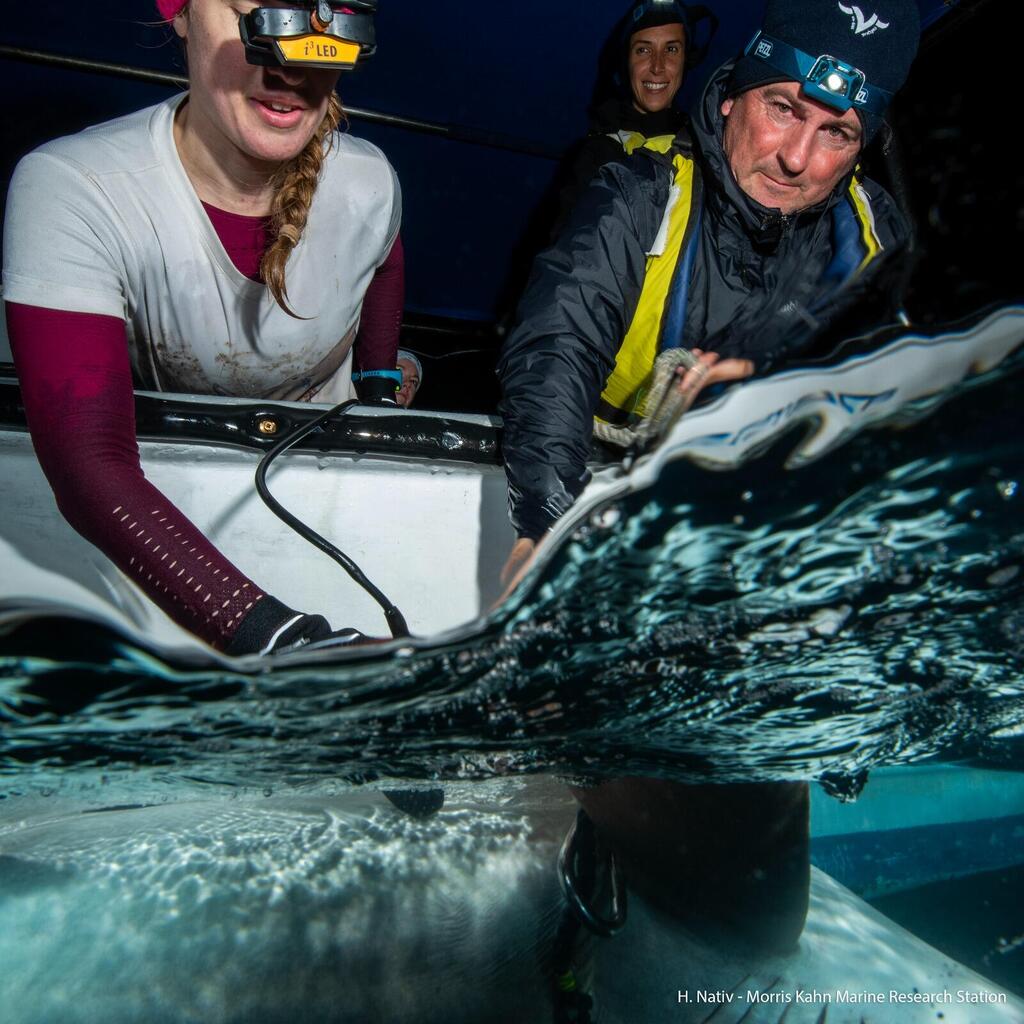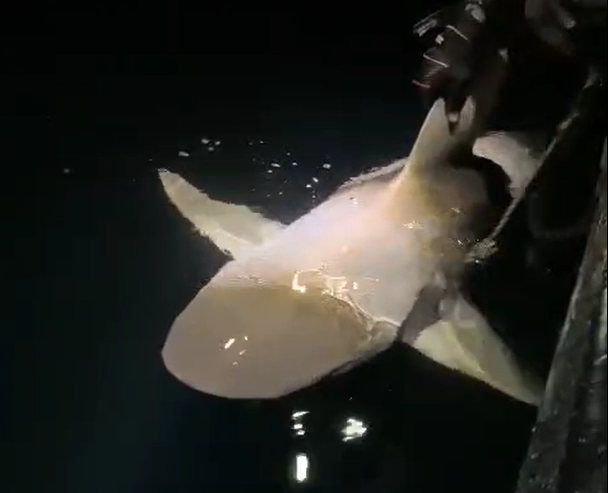Getting your Trinity Audio player ready...
Tagging Luisa the shark by University of Haifa researchers
(Video: Hagai Midrashi, University of Haifa)
Just before the expected rainy weather at the end of the week, a team of researchers from the Morris Kahn Marine Research Station at the Leon H. Charney School of Marine Sciences at the University of Haifa identified, tagged and named two sandbar and spinner sharks: Louisa and Fernanda. Dr. Aviad Scheinin, Head of the Apex Predators Lab, said: "As a tribute to the return of Fernando and Luis from captivity, we decided to give the two sharks similar names."
Read more:
Shark tagging research is part of a long-term ecological study conducted for the past nine year on the apex predator population in the Eastern Mediterranean Sea, where sharks play an important role in the marine ecosystem. During the winter, sharks can be found in warm waters off the coasts of Hadera, Ashdod, and Ashkelon. So far, most of the research has been conducted at the Orot Rabin Power Plant in Hadera, where 109 sharks were tagged until Thursday.
This is the only long-term shark tagging research in the entire Mediterranean and is carried out under the supervision of the Israel Nature and Parks Authority. Most shark species in the Mediterranean are severely threatened, and Israel serves as a safe haven for them because they are protected in its waters.
So far, 71 sandbar sharks, mostly females and 38 spinner sharks, mostly males, have been tagged. "The arrival of Louisa the spinner shark to our area is a relatively rare and very exciting occasion. Spinner sharks are endangered in the Mediterranean Sea. After planting the acoustic tag we are able track her movement along the coast of Israel and understand their 'purpose' to come to warm waters and see whether she will return to this area in the coming years," explained Dr. Scheinin.
2 View gallery


Dr. Scheinin during tagging Luisa
(Photo: Hagai Nativ, Leon H. Charney School of Marine Sciences at the University of Haifa)
Following the grant of National Geographic funds, shark research at the Morris Kahn Marine Research Station will be expanded to Turkey, Italy, and Albania, in cooperation with local shark researchers in the coming years. During the research, the researchers will undergo training in Israel in order to learn how to tag sharks correctly and safely.
Dr. Scheinin concluded: "Conducting shark research during the harsh reality of war is a huge challenge for us, but we are determined to carry it out despite the difficulty in order to understand why the sharks come in the winter, where they swim in the summer, and how we can better protect them."





